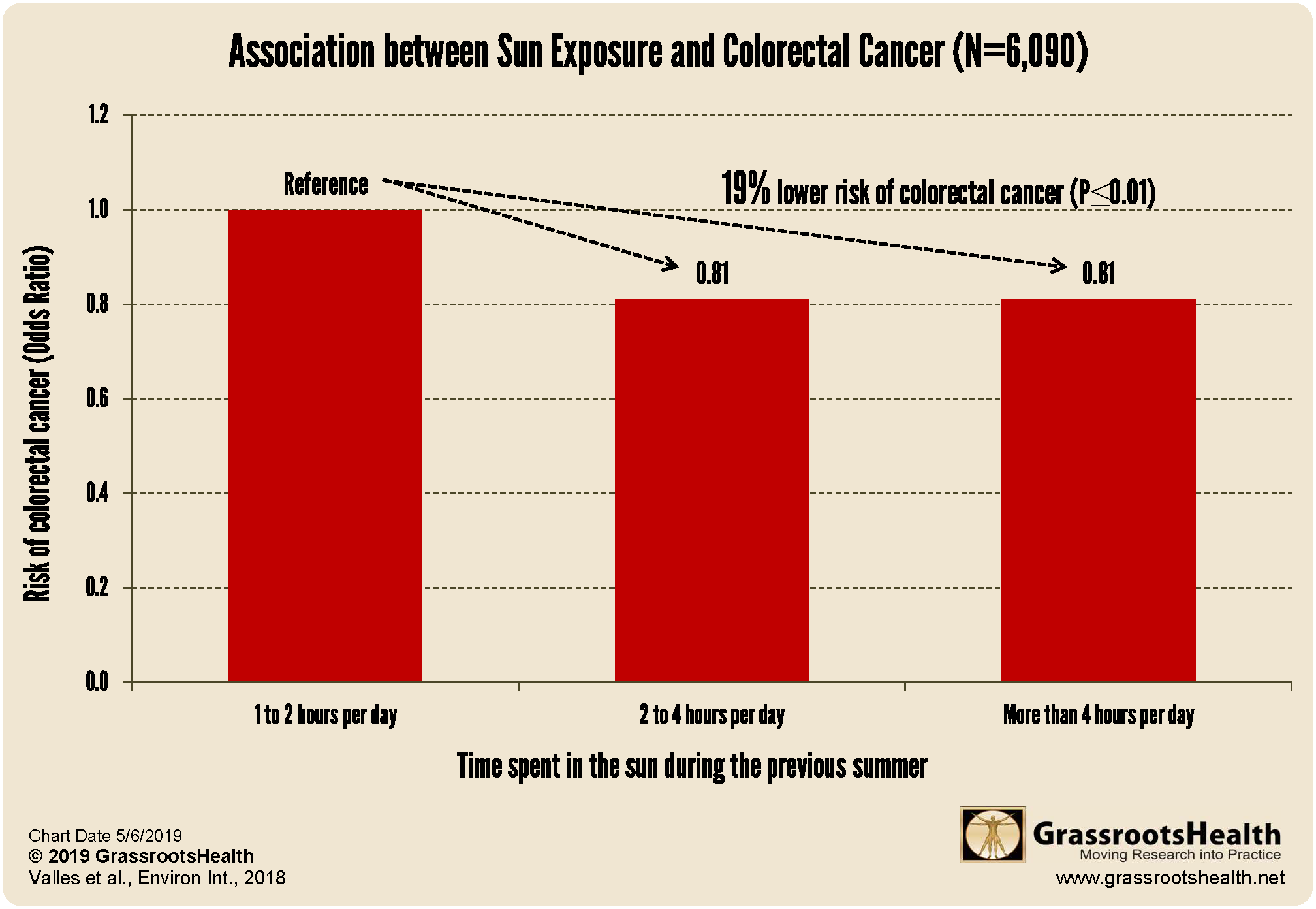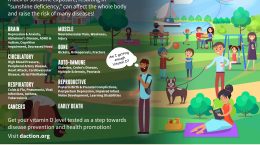Published on May 8, 2019
According to the American Cancer Society, colorectal cancer is the third most common cancer and the third leading cause of cancer-related death in the United States in both men and women. Both inadequate sun exposure and low vitamin D levels have been linked to higher colorectal cancer incidence.
 In September 2018, results from a study assessing the inter-related association between sun exposure and dietary intake of vitamin D and colorectal cancer were published in Environmental International. In this study, 2140 colorectal cancer patients and 3950 controls (people without colorectal cancer) living in Spain provided demographic, medical history, dietary, and sun exposure information. Vitamin D and calcium intake from food was estimated, as was lifetime sun exposure. Analyses were adjusted by known colorectal cancer risk factors such as family history of colorectal cancer, diabetes, red meat intake, and BMI.
In September 2018, results from a study assessing the inter-related association between sun exposure and dietary intake of vitamin D and colorectal cancer were published in Environmental International. In this study, 2140 colorectal cancer patients and 3950 controls (people without colorectal cancer) living in Spain provided demographic, medical history, dietary, and sun exposure information. Vitamin D and calcium intake from food was estimated, as was lifetime sun exposure. Analyses were adjusted by known colorectal cancer risk factors such as family history of colorectal cancer, diabetes, red meat intake, and BMI.
What were the findings of the study?
As shown in the chart below, the research team found a 19% lower risk of colorectal cancer for participants who reported sun exposure of 2 or more hours per day compared to 1-2 hours per day in the prior summer (P≤0.01). Also, those with a higher lifestyle sun exposure score, based on sun exposure in the previous summer and 10 years prior, 30-year frequency of skin burning episodes, and outdoor professional activity, had a lower risk of colorectal cancer (P<0.0001).
When the researchers analyzed the interactive effects between known risk factors, sun exposure, and dietary intake of vitamin D plus calcium on colorectal cancer, they found both independent and cooperative effects of sun exposure and dietary vitamin D plus calcium on lower colorectal cancer risk. This study shows that sun exposure and dietary vitamin D, both separately and together, could reduce colorectal cancer risk and be key to cancer prevention.
Are you using sun exposure as a source of vitamin D?
Is sun exposure helping to improve your vitamin D level? Make sure you know your vitamin D level, and see if you are in the target range of 40-60 ng/ml (100-150 nmol/L). Find out your levels today! Log on to the shop (click the link below) to get your tests and see for yourself if your levels can be improved. Use coupon code SunMonth to receive 15% off during Sunshine Month only!
Make sure you track your results before and after, about every 6 months!
Click Here to Access the Shop Page
How can I track my sun exposure and my vitamin D levels?
To help you track your sun exposure and nutrient levels, GrassrootsHealth has created an online tracking system called myData-myAnswers. You can also track your supplemental and dietary nutrient intake to see how they impact your nutrient levels. Check it out today!








